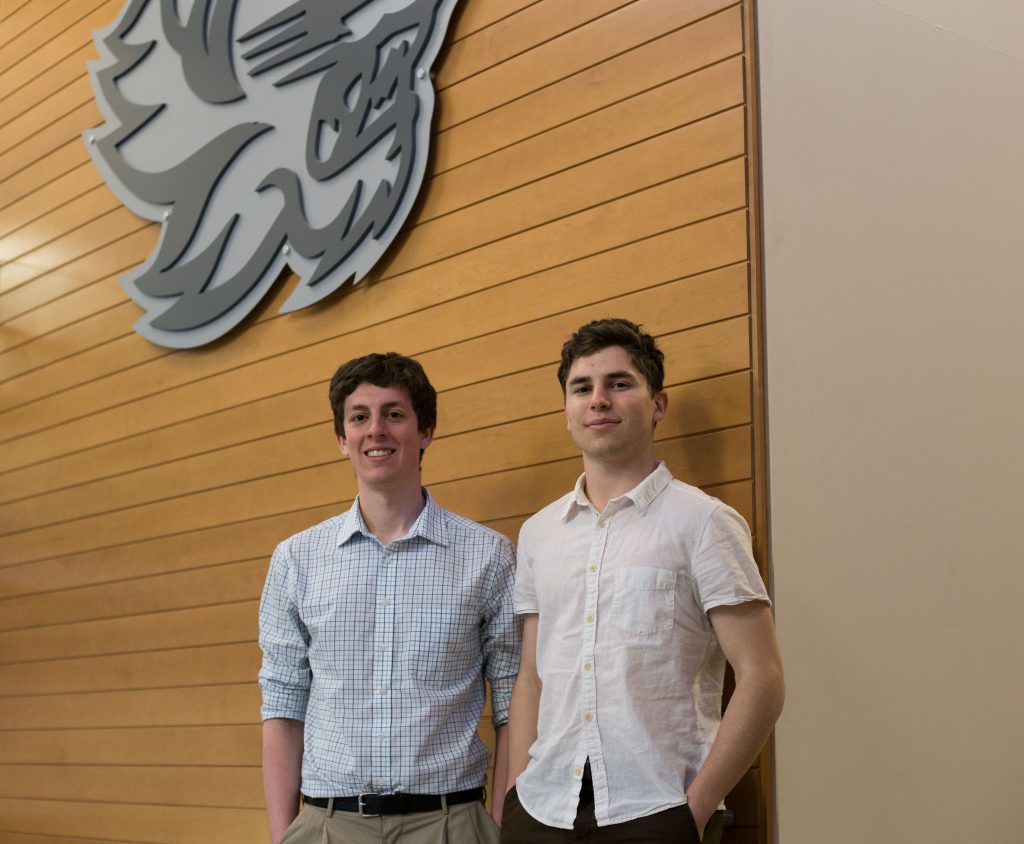
Thousands of students applied for National Geographic’s Chasing Genius in January 2017. Now, the competition has 10 finalists — one of which is a team of two Binghamton University students.
Jasper Baur, a sophomore, and William Frazer, a junior, both majoring in geology, made it to the final 10 in the competition for their technology involving land mine detection.
Baur and Frazer’s idea focuses on creating technology that would be able to detect land mines put in place as a military tactic in countries such as Afghanistan. Even after a conflict has ended, land mines are often left in these areas, negatively affecting the lives of civilians who live there.
“Our idea is to detect plastic land mines using thermal infrared sensing,” Baur said. “This is different because these are basically undetectable as of now, and this technology allows us to actually find plastic mines and there are around 10 million of them in Afghanistan currently.”
The national competition, hosted by National Geographic and Sprint, allows people to submit innovative ideas that highlight the ways in which technology can be used to change the world for the better. The finalists are determined by the Chasing Genius Council and the winner is determined by popularity — people vote online for their favorite ideas. Winners take home $25,000 in prize money to develop and carry out their project. According to Baur and Frazer, they would use the money to purchase better equipment to find land mines more precisely. Timothy de Smet, a geospatial remote sensing research educator at BU, said winning the prize money could allow Baur and Frazer to conduct research on a large scale.
“We could actually complete this project for $25,000 and have real, tangible results and actually help people,” said de Smet. “I think projects like this show how applicable geophysics is to the real world.”
Baur said the idea to focus on land mines stemmed from a research stream for the Freshman Research Initiative, where Baur was working with postwar artifacts, which led him to this idea of creating better detection technology. For Baur, the humanitarian application is part of what has caused him to keep moving forward with the project.
“What’s motivated me is really that the civilians that are injured,” Baur said. “There’s thousands of fatalities every year, mainly children, which is really sad because they confuse the mines with toys.”
Alex Nikulin, an assistant professor of geology at BU, is helping Baur and Frazer to develop their project. According to Nikulin, the ability to carry out the project as undergraduate students sets Baur and Frazer apart.
“I think what separates our students is that their idea not only is novel and innovative, but it’s also feasible and applicable,” Nikulin said. “What they’ve done is they’ve taken this idea and this technology and converted it into a platform that actually delivers a result that has not been delivered before.”
Frazer said even if they do not win the competition, he wants to continue working on the project.
“We’ve been exploring different outlets for funding,” he said. “No matter what happens with this funding, I’m just thinking about continuing to move forward with this project because I truly believe in it and it’s a way that I can both develop some skills but more importantly, make an impact.”
Voting for the Chasing Genius competition can be done through its website once a day, every day until voting closes. The winner will be revealed once voting has concluded on March 20.


